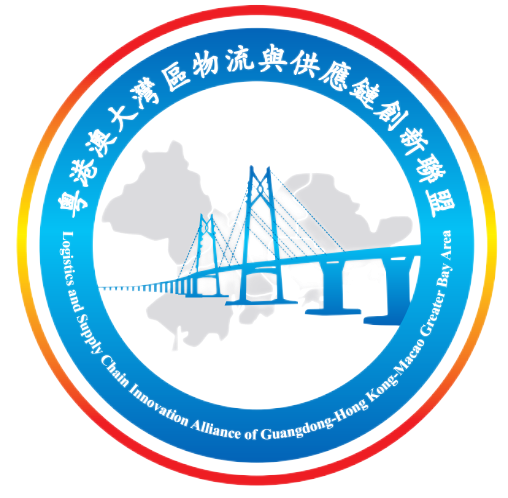Frontiers of Digital Twins in Intelligent Manufacturing and Smart Cities
智能製造與智慧城市數字孿生前沿會議

Welcome to the Frontiers of Digital Twins in Intelligent Manufacturing and Smart Cities Website!
Call for Papers
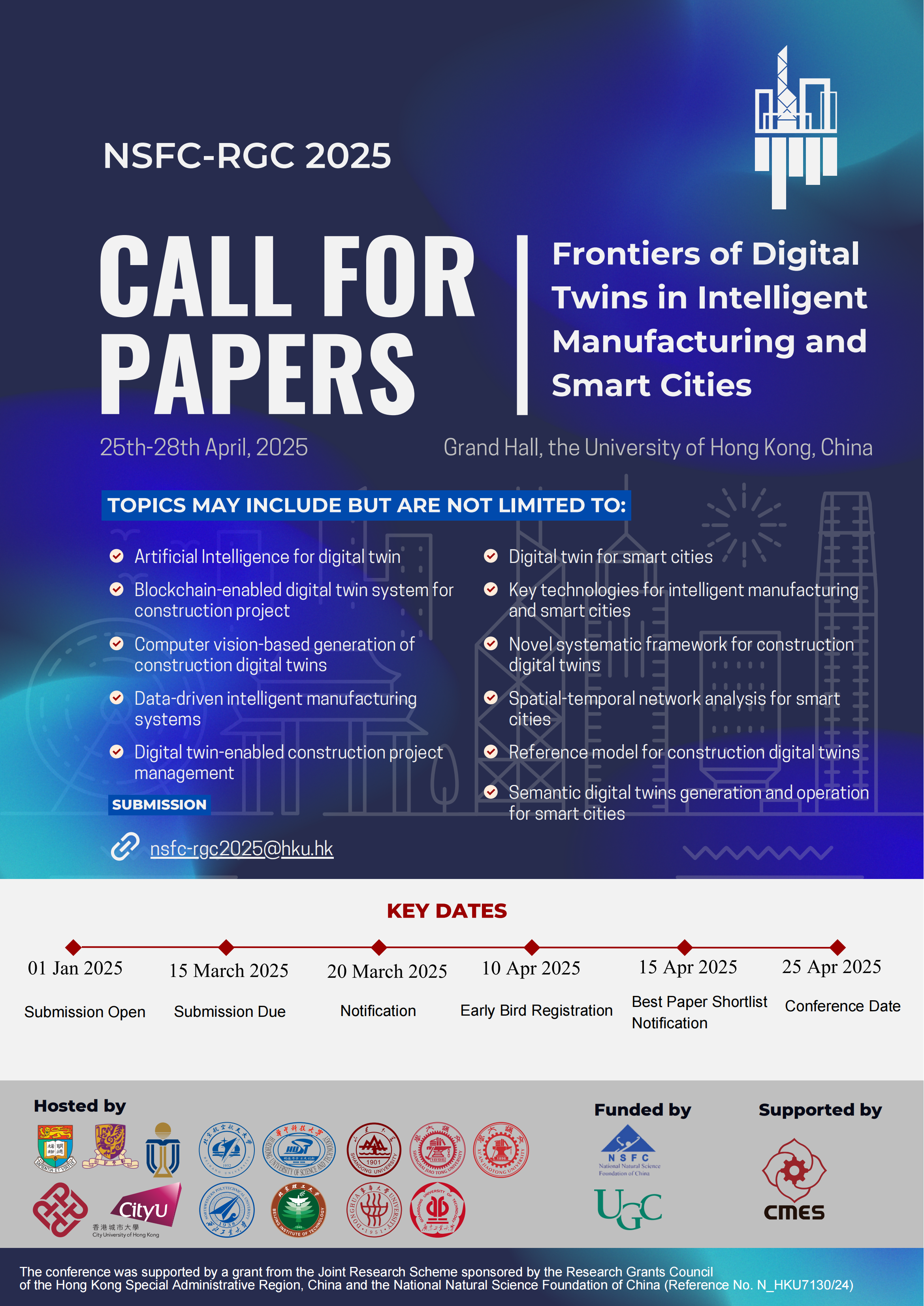
Special Sessions
Key technologies of intelligent manufacturing systems driven by digital twins towards Industry 5.0
Goal
In the rapidly advancing realm of manufacturing, the complexities associated with system optimization have grown increasingly sophisticated. Digital twin modeling, powered by Large Language Models (LLMs), has emerged as a pivotal solution to tackle these intricacies. Moreover, digital twin plays a crucial role in enabling predictive maintenance of intelligent manufacturing systems to reduce downtime and enhance overall productivity. Furthermore, digital twins facilitate dynamic decision-making and optimization, allowing manufacturers to adapt swiftly to changing demands and conditions. Of particular note, the integration of digital twins with artificial intelligence and communication technologies has ushered in unprecedented innovation in manufacturing systems. Human-machine-environment symbiotic manufacturing, where humans, machines, and the environment work harmoniously can be realized with the insights provided by digital twins. Additionally, distributed manufacturing systems, leveraging digital twins, have revolutionized production processes by enabling seamless collaboration across diverse locations. To enhance coordination among various system components, digital twin-based multi-agent manufacturing systems are proposed to further optimize functionality, efficiency, and reliability. These advancements underscore the transformative impact of digital twin technologies in shaping the future of manufacturing. This session serves to gather researchers and practitioners around the world to explore the key technologies of intelligent manufacturing systems driven by digital twins towards Industry 5.0 to preview the next steps on the way.
Sub-topics
- Digital twin modeling and optimization of manufacturing systems driven by Large Language Models.
- Predictive maintenance of intelligent manufacturing systems driven by digital twins.
- Dynamic decision-making and optimization of manufacturing systems driven by digital twins.
- Human-machine-environment symbiotic manufacturing systems driven by digital twins.
- Distributed manufacturing systems driven by digital twins.
- Digital twin-based multi-agent manufacturing systems.
Organizers
- Dunbing Tang, Professor, Nanjing University of Aeronautics and Astronautics, China. E-mail: d.tang@nuaa.edu.cn
- Changchun Liu, Assistant Researcher, Nanjing University of Aeronautics and Astronautics, China. E-mail: liuchangchun@nuaa.edu.cn
- Qingwei Nie, Lecturer, Yangzhou University, China. E-mail: d.nie@yzu.edu.cn
- Tong Zhou, Lecturer, Nanjing Tech University, China. E-mail: t.zh@njtech.edu.cn
- Yi Zhang, Associate Professor, Nanjing Institute of Technology, China. E-mail: y.zhang@njit.edu.cn
Digital Twin-driven Human-Robot Collaboration
Goal
Digital twin (DT) technology has rapidly evolved into a foundational tool for enabling intelligent systems across industries such as manufacturing, healthcare, and urban management. By creating real-time, virtual replicas of physical entities, digital twins provide advanced capabilities for monitoring, simulation, and prediction, which are critical for optimizing complex systems. Meanwhile, the field of human-robot collaboration (HRC) has seen significant advancements, with robots increasingly capable of working alongside humans in dynamic and unstructured environments. These robots, enhanced by artificial intelligence (AI), can now adapt to human intent, learn from interactions, and perform tasks that require a high degree of precision and flexibility.
The convergence of digital twin technology and human-robot collaboration is an interesting topic. Digital twins serve as a bridge between humans and robots by enabling real-time interaction, fostering better understanding of robot behavior, and optimizing collaborative tasks through simulation and analysis. For example, digital twins allow humans to guide robots in complex environments by visualizing and predicting their actions virtually, while robots equipped with digital twins can adapt to human feedback to improve performance. This synergy between digital twins and human-robot collaboration is unlocking unprecedented potential across domains, enabling smarter, safer, and more efficient systems.
Track topics and their description
This special session aims to present the state-of-the-art, theories, technologies, tools, and applications to focus on the advancements and challenges of digital twin-driven human-robot collaboration systems. To contribute to these areas, this special session includes the following topics, but is not limited to
- Digital twin modeling and optimization for human-robot collaboration.
- Human-in-the-loop control and decision-making in digital twin-driven robotics.
- AR/VR-enabled interfaces for enhanced interaction with robots through digital twins.
- Symbiotic human-robot systems enabled by digital twin technology.
- Digital twin applications in collaborative robotics for manufacturing, healthcare, and urban management.
- Security in digital twin-driven human-robot collaboration.
Organizers
- Shimin LIU, Postdoctoral Fellow, The Hong Kong Polytechnic University, China. E-mail: shimin.liu@polyu.edu.hk
- Jiazhen PANG, Postdoctoral Fellow, The Hong Kong Polytechnic University, China. E-mail: jiazhen.pang@polyu.edu.hk
- Pai ZHENG, Associate Professor, The Hong Kong Polytechnic University, China. E-mail: pai.zheng@polyu.edu.hk
Digital Technology-enabled ESG Reporting and Assurance against Greenwashing
Introduction
Environmental, Social, and Governance (ESG) disclosure obligations for companies are rapidly increasing around the world. Investors are becoming increasingly aware of both company financial statements and ESG reports. In this sense, ESG reporting reflects management strength and engenders investor confidence in the long-term prospects of the company. However, there are several challenges along with the ESG reporting process: data authenticity in report preparation, data consistency in report writing, and data transparency in report publication.
The ESG agenda is moving forward together with increasing scrutiny on the quality of ESG information disclosed by businesses. Companies put in place necessary systems, processes, and controls to manage ESG data that not only facilitates performance monitoring, but also supports external assurance. Similarly, the primary challenge with respect to ESG assurance is the credibility and reliability of ESG data.
Digital technologies have the potential to deal with the aforementioned challenges and therefore offer unprecedented opportunities for combating the ESG greenwashing behaviors. Furthermore, as the digital technologies continue to evolve, there is an increasing need for theoretical foundation, new methodologies and approaches, and empirical evidence to support the development and applications.
The aim of this special issue is to explore the transformative impact of digital technologies and attract top-quality research on the methodology development and applications of digital technologies, and novel data analytics in practice and research within the field of ESG reporting and assurance. Both theoretical and empirical work is welcome, and studies developing new methods for modelling, mechanism design, optimization, inference and prediction, empirical studies, and interdisciplinary research are encouraged.
List of topic areas
- AI-empowered ESG data authenticity assessmen
- Artificial Intelligence Generated Content (AIGC) in ESG reporting
- Blockchain-enabled ESG data sharing
- Digital asset models for ESG data
- ESG data security
- ESG data trading mechanism design
- Federated learning for ESG assurance
- Impact of digital transformation on anti-greenwashing
- Incentive mechanism design for the use of digital technologies
- IoT-enabled ESG data collection
- Knowledge graph of ESG data
- Large Language Models (LLMs) for ESG assurance
- Smart ESG data analytics
Guest editors
- Dr. Yelin Fu, College of Economics, Shenzhen University, China. E-mail: msylfu@gmail.com
- Prof. Yasser Dessouky, Department of Industrial and Systems Engineering, San Jose State University, USA. E-mail: yasser.dessouky@sjsu.edu
- Prof. Abraham Zhang ,Adam Smith Business School, University of Glasgow, UK, E-mail: Abraham.Zhang@glasgow.ac.uk
- Prof. Ray Zhong, Department of Data and Systems Engineering, The University of Hong Kong, Hong Kong SAR, China. E-mail: zhongzry@hku.hk
Paper Template
NSFC-RGC2025 Conference Word Template.docxHKU is calling!
Hong Kong is calling!
Hosted by





Funded by


Mainland/Hong Kong Collaborators




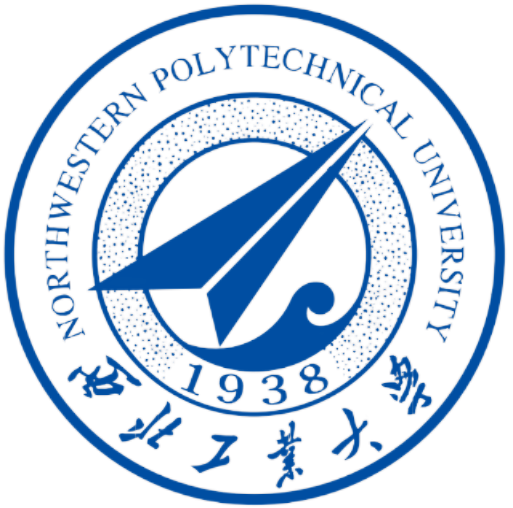
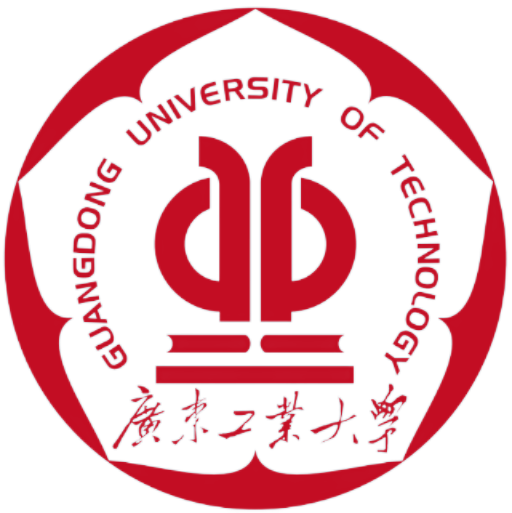
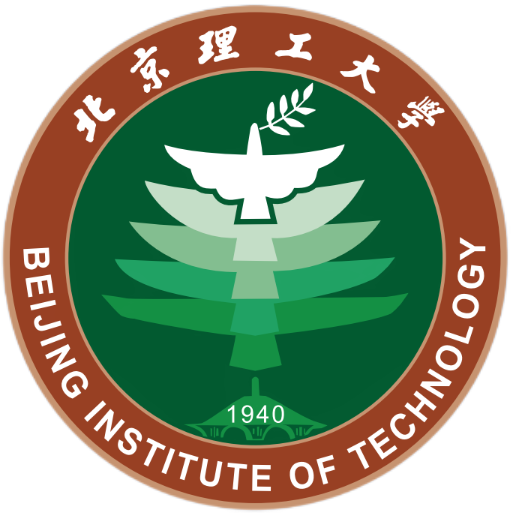
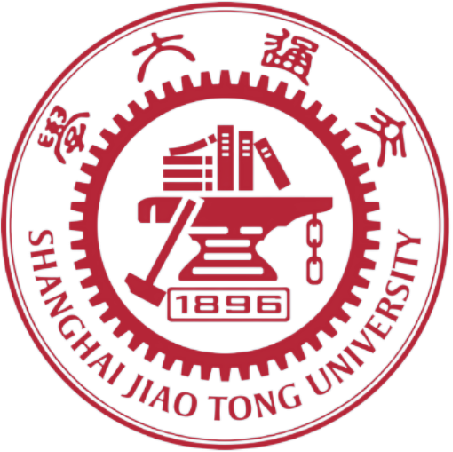


Supported by
